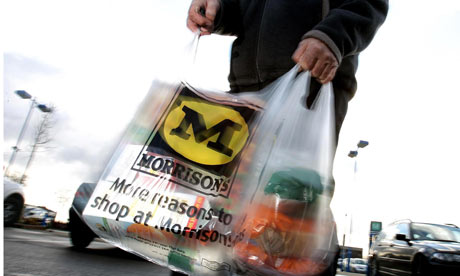As the Supermarkets go from strength to strength will this have an effect on the downturn. The supermarket go on a big employment drive will this take the sting out of the recession.
But this growth in the supermarkets will have a down side, if the supermarkets continue to open new stores (small and large) then the smaller
local produce shops will disappear even more than ever.
New jobs created
[caption id="" align="alignleft" width="142" caption="Iceland created 2,500 Jobs"]

[/caption]
[caption id="" align="alignleft" width="142" caption="Waitrose create 4,000 new jobs"]

[/caption]
[caption id="" align="alignleft" width="142" caption="Sainsbury's create 5,000 new jobs"]

[/caption]
[caption id="" align="alignleft" width="142" caption="Tesco create up to 10,000 new jobs"]

[/caption]
[caption id="" align="alignleft" width="110" caption="Creating up to 5,000 new jobs"] [/caption]
[/caption]
Seasonal Produce
I work for a food manufacture. I think we should start buying seasonal produce, this will halp local producers and local growers. local produce. Why should we be able to buy strawberry's in December, we buy so much food from around the world, do we care about who and how our food is manufactured.
[polldaddy poll="1283004"]
visit full article
Morrisons to create 5,000 new jobs

A Morrisons customer in Tynemouth. The company wants to add 90,000 sq metres of store space in coming years Photograph: Owen Humphreys/PA
Morrisons has pledged to create 5,000 jobs this year, bucking the rise in unemployment as it looks to grow despite the economic downturn.
Britain's fourth-largest supermarket group said this morning that it would create new positions across its chain of stores. The new roles will include working on Morrisons' butchery, fish and bakery counters, said the personnel director, Norman Pickavance, although full details were not available.
"Even in these challenging economic conditions, Morrisons is committed to hiring and training new people to keep retail as the engine room of the economy and support our continuing growth," Pickavance said.
sourced from The Guardian read full article








